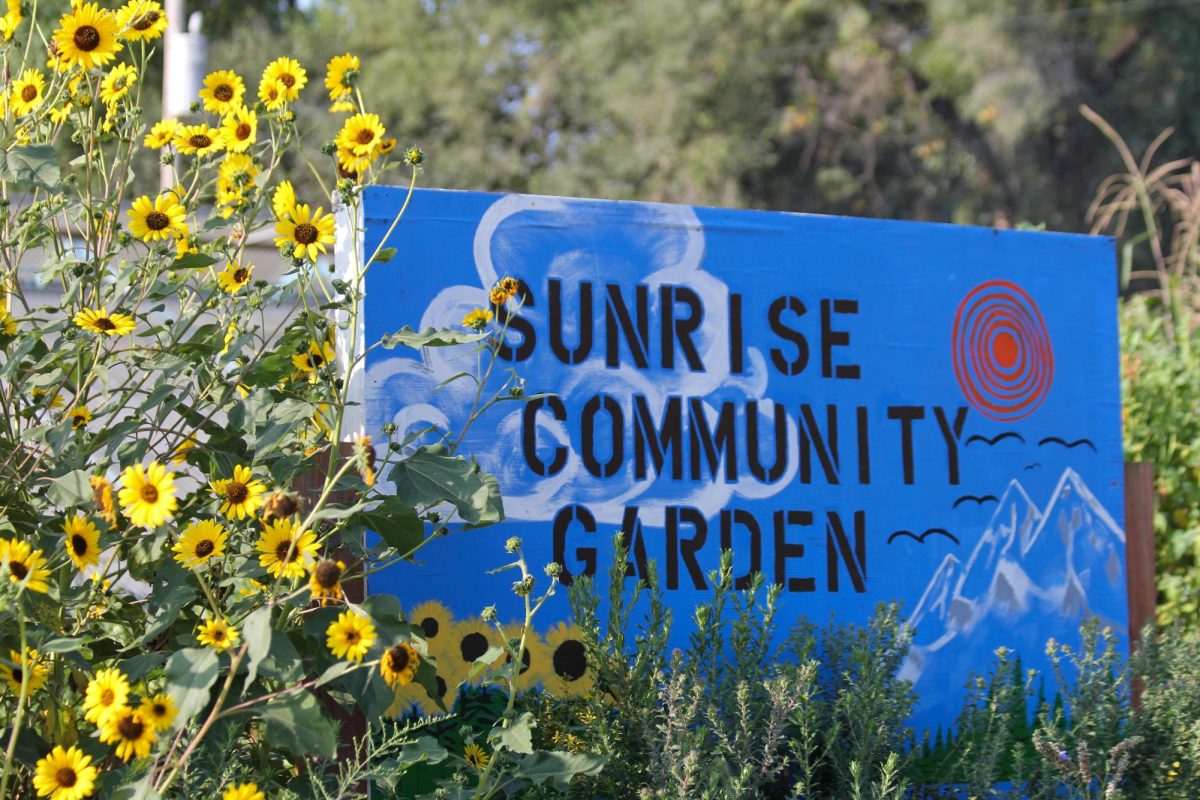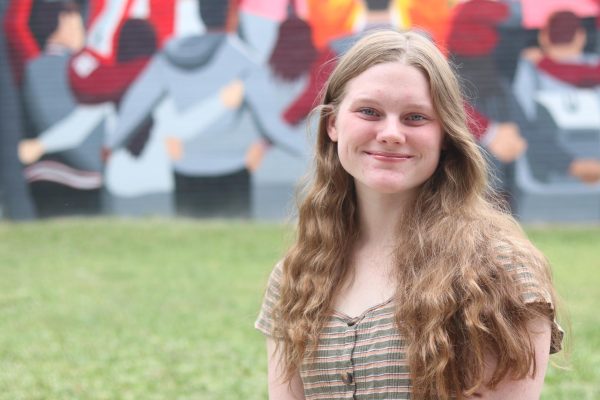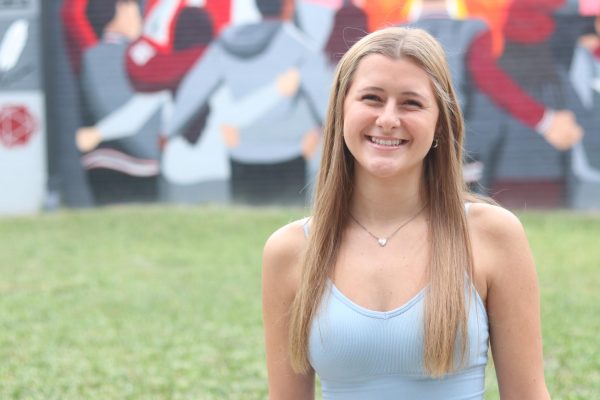A greenhouse. A kitchen. A family.
Over the past ten years, the Sunrise Project has wrapped this all into one at 1501 Leonard Avenue — but the nonprofit won’t be able to call this location home much longer.
On August 26, 2024, Sunrise Project announced on social media that due to a change in property ownership, the organization is in the process of finding a new location.
“We made that announcement to the community because we want to be transparent,” cofounder Melissa Freiburger said. “We want the community to know what we’re going through.”
The Sunrise Project was founded in 2015 by Freiburger and Emily Hampton with the mission of connecting the community through accessible and sustainably sourced food while providing volunteer opportunities to high schoolers and the general community.
“Two things they’re both passionate about [is] cooking and gardening,” junior Goldy Stephens daughter of Freiburger said. “Everyone loves food, everyone has to have food, everyone has to eat.”
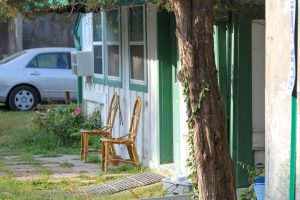
Freiburger rents the property housing multiple tenets from its primary owners Dave and Susan Milstein. But after Dave’s death in 2020, it has been harder for Susan to maintain the space alone.
“It just feels like it’s the right time for her to let the property go and move on,” Freiburger said. “She’s looking for a buyer which means we probably won’t be able to stay here.”
A central part of the Sunrise Project is the layout of its headquarters.
“People love the synergy,” Freiburger said. “We have our on-site garden, we have the pantry, we have the community space inside, and it all just kind of ties together.”
The location of the building has also been valuable for its success.
“They’re in such a great central location for a lot of families to walk there or to take a bus there,” science teacher and volunteer Lisa Ball said. “I could imagine if they have to move to the edge of town, it could be harder to access for people who actually need their services or for volunteers who want to get out there.”
The organization provides a wide range of volunteer opportunities for the community through their food production including gardening, cooking, and delivering meals.
“I started out in the garden and I really enjoyed that,” senior volunteer Molly Kelly said. “I wanted to keep volunteering there, but I didn’t have enough time to do the garden every week, so I learned about the free meals, the delivery stuff, and that’s something easy I can do.”
Ball introduced the organization to the AP Environmental Science class to encourage student engagement at the local level.
“We helped them with some big garden projects that they couldn’t get around to,” Ball said. “I wanted to make sure [students] know about this resource in our community.”
The organization has become a welcoming space for everyone involved.
“The heart of our mission is that social connection piece,” Freiburger said. “The most important thing is that we’re there together, we’re learning from each other and we’re connecting. Getting food on the table at a meal is definitely a priority, but it’s not going to fall secondary to making sure every person that walks in that door feels welcome.”
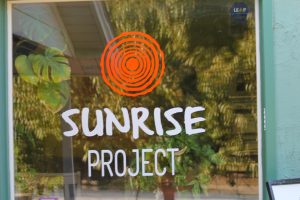
Many of the volunteers at the Sunrise Project have leaned into the community aspect of their work.
“I really love the people,” Stephens said. “We go out and have dinner together and we have volunteer meals and we all have our each other’s numbers and we just really like each other.”
The Sunrise Project has also focused on concentrating its efforts on Lawrence specifically.
“They’re really local,” Kelly said. “They’re very personalized to Lawrence. It’s an organization here by people who live here and who have an understanding of the community.”
Although it might be difficult, the impending move might be a good thing.
“We’ve outgrown our space,” Stephens said. “Our parking lot is filled, there’s no seats left in the building. I think that’s the biggest thing …we’re really big and our space is not.”
Although the move is a big change, Freiburger is ready to lead the project forward.
“It’s kind of nerve-wracking, but I ultimately fall back on having faith in our community to come together,” Freiburger said. “We will do things as a community, and it may look different, and that’s fine, but not everyone likes change. I want to lead with some optimism and also that attitude of acceptance.”



